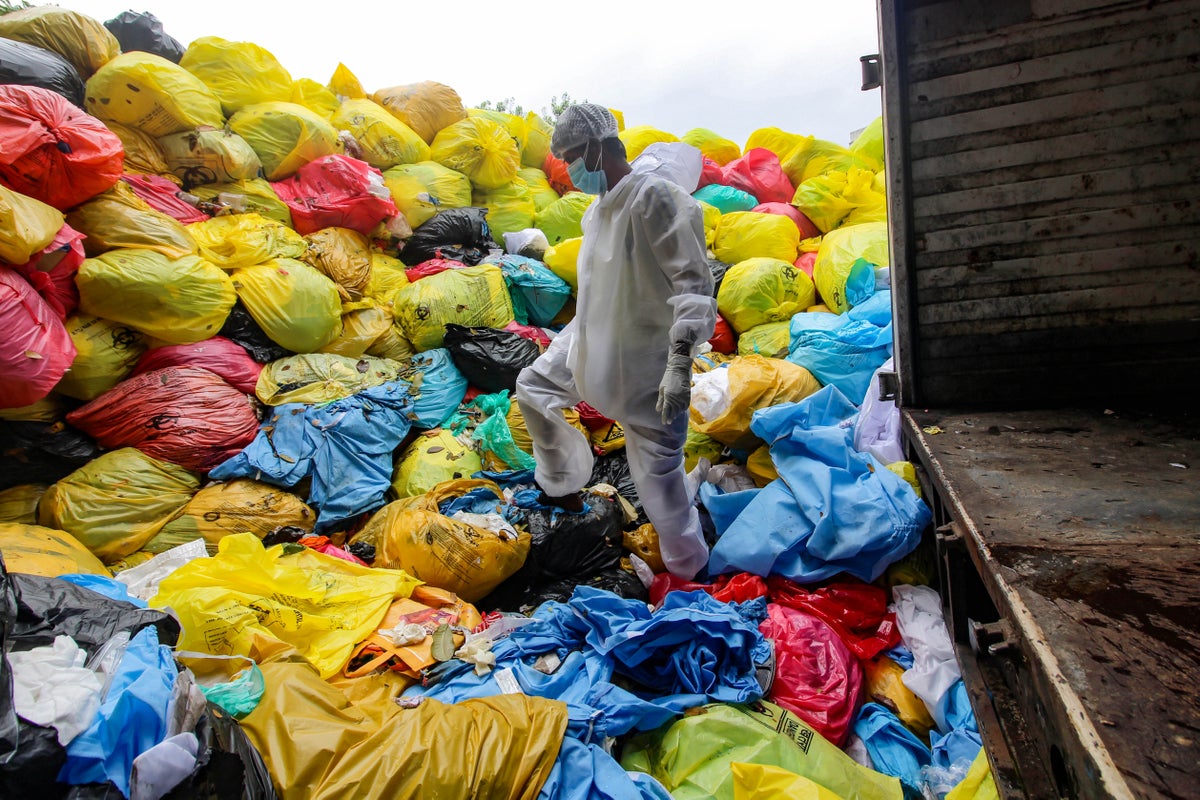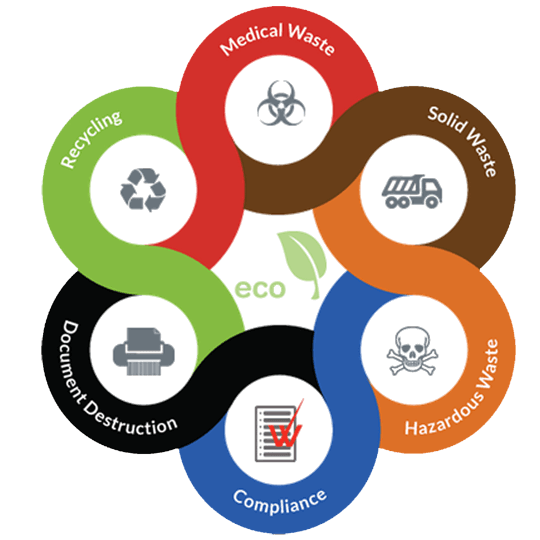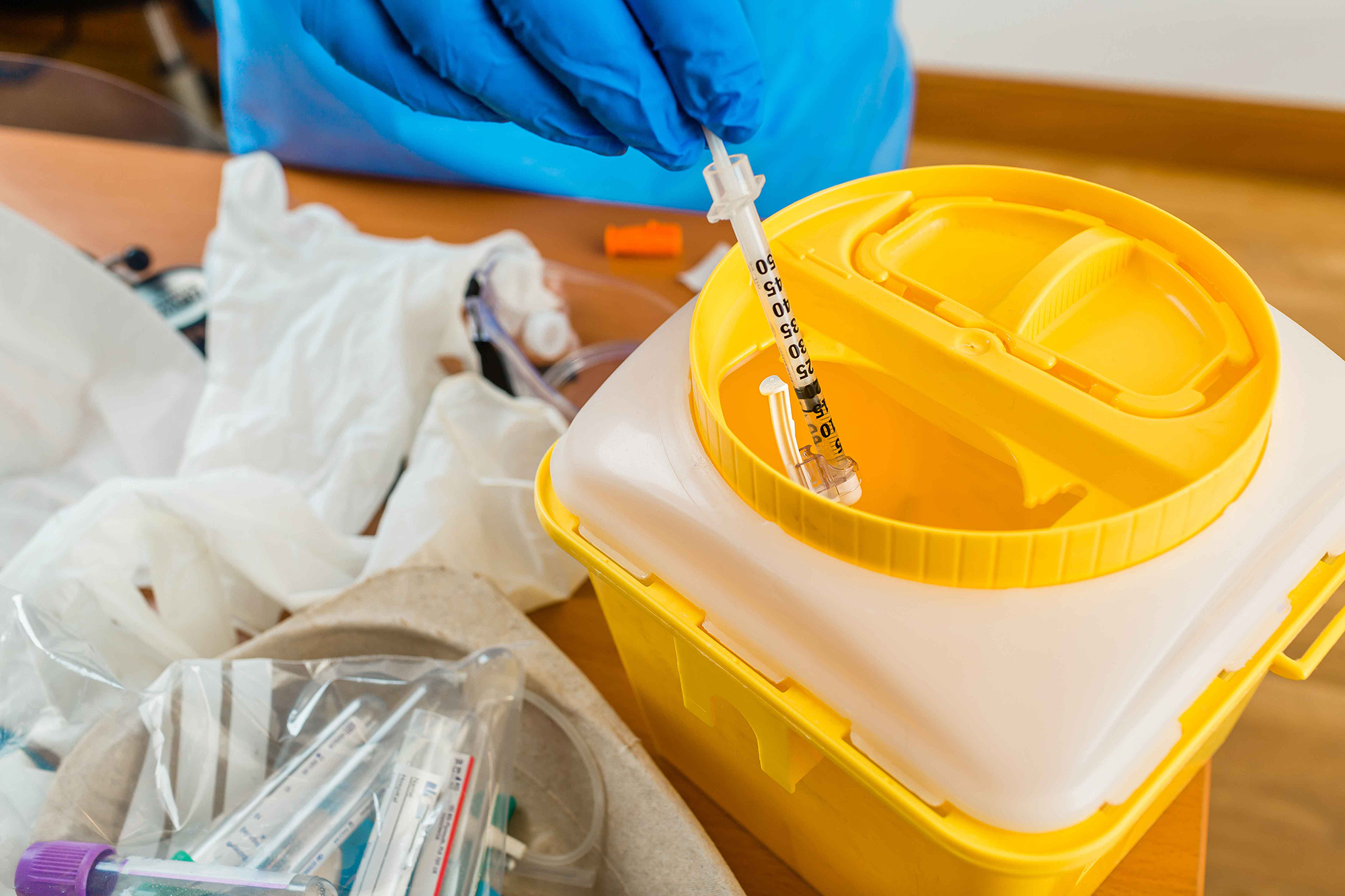Guaranteeing Safe Handling and Disposal of Medical Waste
Guaranteeing secure handling and disposal of medical waste is of extremely important importance in health care setups. Incorrect monitoring of medical waste can posture considerable risks to the atmosphere, public health and wellness, and health care workers. In this intro, we will discover the importance of proper clinical waste administration, the risks connected with improper handling and disposal, as well as the guidelines and strategies that can be applied to guarantee its secure disposal.
Relevance of Correct Medical Waste Administration
Appropriate clinical waste administration is of utmost relevance in ensuring the safety and security and health of medical care specialists, patients, and the public. Clinical waste describes any type of waste created by healthcare facilities throughout the diagnosis, therapy, or immunization of humans or animals. This waste can present severe wellness risks if not managed and taken care of appropriately.
One of the primary reasons that correct clinical waste monitoring is important is to avoid the spread of infectious conditions. Clinical waste, such as made use of needles, infected dressings, and biological products, can carry damaging microorganisms. If not handled and disposed of appropriately, these microorganisms can be sent to health care employees, patients, waste trainers, and even the general public, bring about the potential break out of diseases.
Additionally, appropriate clinical waste monitoring assists protect the setting - medical waste removal. Clinical waste consists of hazardous materials, consisting of chemicals, pharmaceuticals, and contaminated substances. When not handled appropriately, these substances can contaminate soil, water bodies, and the air, positioning a substantial risk to ecological communities and public health
Moreover, efficient clinical waste monitoring guarantees compliance with local guidelines and worldwide criteria. Federal governments and regulatory bodies have developed protocols and guidelines to ensure the safe handling, storage space, transport, and disposal of medical waste. Following these laws is vital to stay clear of lawful consequences and maintain the online reputation and integrity of health care facilities.
Threats of Improper Handling and Disposal

Clients can also be exposed to these infectious conditions if clinical waste is not effectively taken care of. If contaminated needles or other sharps are not disposed of in designated puncture-proof containers, they may inadvertently prick people, leading to potential infections. If clinical waste is not segregated effectively, there is a risk of cross-contamination between different kinds of waste, more boosting the chances of condition transmission.
Improper disposal of clinical waste can additionally have detrimental results on the atmosphere and the general public. If medical waste is not treated and disposed of appropriately, it can pollute water resources, dirt, and air, bring about the spread of diseases and pollutants. This can have long-term effects on environments and public wellness.
Guidelines for Safe Handling of Medical Waste
Carrying out efficient methods for the secure handling of medical waste is essential in making certain the protection of health care professionals, people, and the basic public. These guidelines are vital in decreasing the threats linked with the handling and disposal of medical waste, such as infections, injuries, and ecological pollution.
Most importantly, health care centers have to develop a comprehensive waste monitoring strategy that follows neighborhood, national, and global guidelines. This plan should include clear instructions on waste segregation, product packaging, transportation, storage space, and labeling. It is essential to divide different sorts of waste, such as sharps, contagious products, drugs, and non-hazardous waste, to stop cross-contamination and promote risk-free disposal.
In addition, health care personnel must obtain comprehensive training on correct waste handling techniques. They must be educated on the potential hazards of clinical waste, the suitable use personal safety equipment (PPE), and the correct treatments for handling, transporting, and dealing with different types of waste.
Additionally, health care centers should consistently keep track of and audit their waste administration methods to make sure compliance with guidelines. This consists of conducting routine evaluations, examining waste handling procedures, and providing responses and training to team member.
Effective Approaches for Waste Disposal
To ensure the secure handling and disposal of clinical waste, it is important to employ efficient techniques for garbage disposal. Clinical waste can present considerable risks to public wellness and the environment otherwise dealt with and taken care of effectively. Health care centers and waste monitoring organizations should implement proper strategies to reduce these threats.
One efficient method for waste disposal is partition. It involves dividing different sorts of clinical waste based upon their characteristics. Partition enables for the appropriate therapy and disposal of each waste classification, lowering the capacity for contamination or harm. Medical care facilities should supply clear guidelines and training to personnel on how to segregate waste appropriately.

Additionally, medical care facilities ought to team up with certified waste management firms to check this make sure proper disposal of medical waste. These companies have the knowledge and tools needed to securely deal with and dispose of medical waste in conformity with guidelines and ideal techniques.
Training and Education And Learning for Health Care Professionals
Medical care experts play a vital function in making sure the secure handling and disposal of clinical waste via comprehensive training and education. It is necessary for medical care suppliers to have a deep understanding of the possible risks related to clinical waste and the appropriate protocols for its monitoring. By obtaining proper training, health care specialists can lessen the possible transmission of contagious conditions, protect against ecological contamination, and protect both themselves and the public.

Furthermore, training programs must stress using individual safety devices (PPE) and proper hand hygiene methods when taking care of medical waste. medical waste disposal service. Healthcare professionals must understand exactly how to appropriately dispose and use of PPE to protect themselves from potential exposure to harmful materials. They should also be informed on the value of routine handwashing and the appropriate usage of hand sanitizers to minimize the spread of contagious diseases
Proceeding education and learning and regular updates on medical waste management practices are vital for health care professionals. As regulations and guidelines progress, it is necessary to keep healthcare suppliers notified about any modifications in methods and ideal practices. This will ensure that they stay current and preserve a high criterion of safety and security in disposing and dealing with of clinical waste.
Verdict
Finally, proper handling and disposal of medical waste is crucial to ensure the security of healthcare specialists, clients, and the environment. Disregarding to comply with guidelines and laws can lead to different dangers and risks. Executing efficient methods for waste disposal and providing appropriate training and education and learning for health care specialists are crucial in maintaining a secure healthcare setting. By sticking to these practices, we can alleviate the potential dangers connected with clinical waste.
Clinical waste refers to any type of waste generated by health care facilities throughout the diagnosis, therapy, or immunization of human beings or animals. If clinical waste is not segregated properly, there is a risk of cross-contamination in between different types of waste, more boosting the opportunities of illness transmission.
It is vital to separate various types of waste, such as sharps, transmittable products, pharmaceuticals, and non-hazardous waste, to protect against cross-contamination and promote risk-free disposal. WasteX Medical Waste Disposal.
To make certain the safe handling and disposal of clinical waste, it is vital to use effective strategies for waste disposal. In addition, health care centers should establish a regular waste collection and transportation timetable to stop waste buildup and decrease the risk of accidents or contamination.